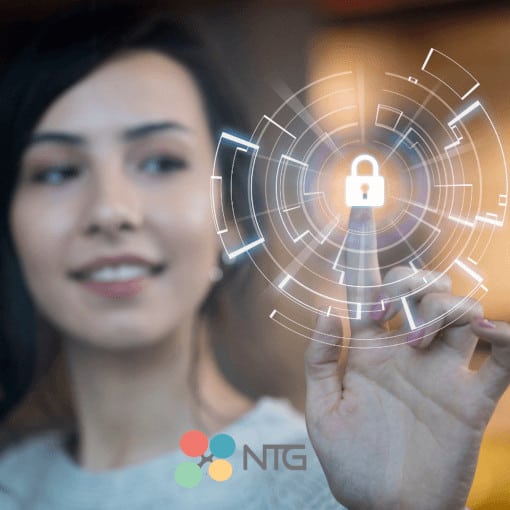It is very common, nowadays, to hear about a major data breach revealing the personal data of millions. It can seem difficult to protect yourseld, but various changes can be made to your devices and accounts to ensure security against outside sources attempting to retrieve your data and breach your privacy.
Keeping yourself safe from data or identity theft is not complex, but it is something we all must understand well if we expect to protect ourselves. There are a few simple steps, recommended by renowned IT experts you can take to safeguard yourself and your information online.

1. Stop Giving Away Personal Information
The easiest method to get people’s data is to inquire about it, regardless of whether they’re purchasing at the cash register, becoming a member of an online group, or receiving a suspicious email.
You should be wary of any malicious email that expresses a sense of urgency or warns that you will lose access if you don’t respond. Check on the account itself, if it makes you more comfortable, but never click a link from an email like this or provide any information anywhere but the actual site or app on which the account lives. Do not share or provide your confidential information via email or over the phone.
2. Watch Out for Links and Attachments
It’s a frequent occurrence that people get defrauded into disclosing their passwords and private information via phone call, email, or text message. Mostly, hackers try to collect the social security number, username, I.D. and passwords.
If you pay attention, you will see red flags that indicate that these messages aren’t genuine – grammatical errors, spelling mistakes, connecting to unusual websites, or the email address seems weird. If it seems fishy, it probably is. Cybercriminals often make their hacking scams look like authentic correspondence from a utility provider, bank, and other corporations.
3. Review Your Mobile App and Social Media Authorization
There are privacy and security policies for each social media platform. Social media users should be aware of what information is collected and shared. Make sure you understand the privacy settings.
Similarly, mobile apps have suggestions for personal data. Most apps ask you for access to contacts, location, and photos to download the app. However, most of the time, these authorizations are not needed for the app to work. It’s a smart idea to go to the settings for all apps, after you’ve installed them, and opt out of settings you’re uncomfortable having on.
4. Install the Latest Software for Added Protection
Viruses and other types of malware can potentially harm your devices. In addition to annoying pop-ups, this can potentially expose your personal information or cause a cyber-attack on your computer. Update your software whenever possible. Antivirus, antispyware, and firewall software should be installed.
In case of a cyber-attack, getting in contact with a reputable IT consulting services provider can be a huge help! IT consulting services can help you recover from these types of attacks and come up with a plan for keeping your information secure going forward.
If you are prone to clicking unsafe links, or if multiple people share an electronic device with you, it is important to install antivirus software, specifically on Windows computers. If Windows 10 is installed on your computer, you should use Windows Defender, a built-in software provided by Microsoft. Windows Defender provides abundant security for most people. Mac customers are usually happy with the security included in macOS. Installing antivirus applications on your phone is not recommended, and you should only download trusted apps from official stores.
5. Create Strong Passwords
Be creative when composing a password. Do not use an easy combination, such as your birthday, which a cybercriminal can easily guess. Select a mix of numbers, special characters, and lower and upper-case letters. It is recommended to create a strong and personalized password for every account rather than repeating the same password, as it increases the probability of being compromised by a single hack.
A password manager tool can assist you to generate and remember strong passwords for each individual account. It is the single most effective strategy you can use to protect your privacy online. Password managers appear complicated to set up, but it works with your settings. Just browse normally, when you sign into different social media accounts, the password manager stores all your passwords and recommends tweaking duplicate or weak passwords, and can even come up with ultra-secure passwords for you.
Don’t forget to modify the original passwords of any devices in your house: your alarms, home internet router, security cameras, and even smart bulbs, in some cases. Using two-step authentication when feasible for online accounts should become second nature.
6. Don’t Broadcast on Social Networks
Don’t post a lot of private information about your life online. It can expose your personal business and put you in danger. Make sure you know who’s seeing your posts by checking your privacy settings and be careful about revealing any information about your location, hometown, or birthday.
7. Be Careful When Using Free Wi-Fi
Public Wi-Fi networks have very few security measures in place, meaning that other users could be able to view your activity. Don’t use your credit card until you’re at home or connected to a secure, password-protected network. Even though it’s convenient to connect in public places, you can be an easy target for hackers.
8. Make Sure the Website is Secure
Check out the top of your browser before entering personal data into a website. If the URL starts with “HTTPS,” or a lock sign is visible that indicates the site is well protected. You can utilize some additional techniques to figure out if the website is reliable; for instance, contact information, a “verified secure” seal or a website privacy policy.
9. Safeguard Your Website Surfing
Advertisers, social media apps, and websites collect data about your whereabouts and search habits. An extension plug can block advertisements and the statistics they accumulate. The data gathered is more personal than you might think.
There are extensions available that also block malware from your browser and provide you with the solution to turn off the ad-blocking when you want. Many websites offer ways to exclude data collection, but that can be done only manually. Using a virtual private network (VPN) is a great option. A VPN is practical and highly recommended if you regularly connect through public Wi-Fi as it provides an additional layer of protection.
10. Use a Browser Instead of Apps When Possible
The various kinds of information that apps can collect through your phone can give them a lot of insight into you. Apps that seem harmless may be trading the data they collect. Look at your device and get rid of most of the apps that are not in use. Instead of an app, you can utilize a browser on your cellphone. Browsers are preferable from a privacy standpoint since they can’t gather as much of your data as an app possibly can. It’s never too late to stop using an app or cut back.
11. Secure Your Conversations with an Encrypted Application
You should use an app that provides end-to-end encryption if you want your messages to be secure. This means that only you and the recipient will be able to read each other’s messages without the interference of a third party. iMessages sent from an iPhone to another iPhone are encrypted – but not when you message an Android phone.
In addition, if encryption is important for you, be careful when backing up your texts to the cloud. The backup is merely a database, which is easy to open and read if someone gains access to your cloud account. Be sure to turn off cloud backups from iCloud and Google Drive and delete any existing backups.
Gaining greater control over your electronic privacy can feel daunting. But you just have to take it one step at a time. Taking the simplest steps to secure your accounts, setting strong passwords, enabling two-factor authentication, and looking out for hackers will make a big difference.


